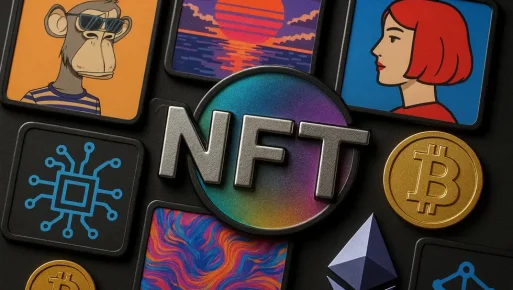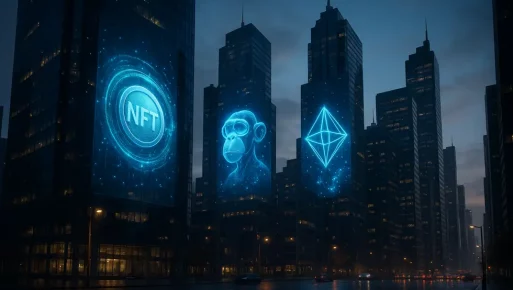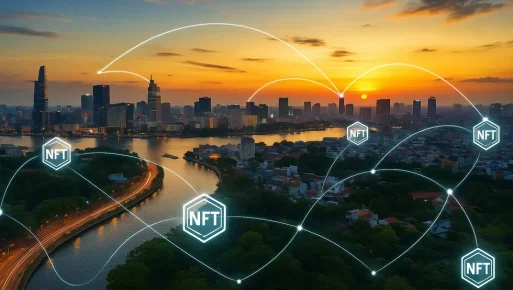As the NFT sector continues to revolutionize digital ownership, understanding the nuances of popular NFT marketplaces is vital for everyone—from new collectors to seasoned traders and creators. Each platform offers unique features, benefits, and community dynamics. This article will guide you through these differences, covering stalwarts like OpenSea, innovators like Magic Eden and Blur, as well as platforms focused on community governance such as Rarible. By the end, you will have a better understanding of how to align your NFT ambitions with the right marketplace.
Exploring the Multifaceted World of NFT Marketplaces
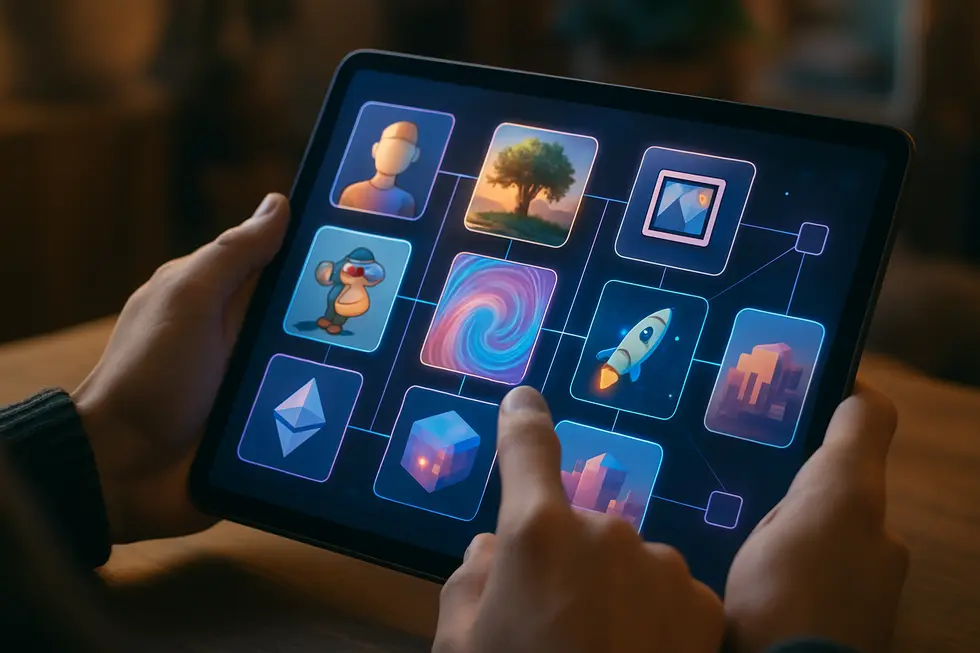
NFT marketplaces have evolved into dynamic ecosystems where digital art, collectibles, and assets find their designated audiences. Each marketplace brings its own distinct flavor, driven by the technology and community focus it champions. OpenSea remains a versatile giant, supporting multi-chain NFTs including Ethereum and Polygon. Its extensive digital collection makes it an artists’ haven. Magic Eden, specializing in Solana NFTs, thrives on its low fees, attracting gamers and enthusiasts of digital collectibles.
Rarible distinguishes itself with a DAO structure, promoting a user-driven governance model, while marketplaces like Binance NFT attract cost-conscious users with low fees and exclusive drops. Platforms such as LooksRare incentivize user participation with token rewards, creating active, engaging environments. Crypto.com appeals to beginners with its user-friendly interface and diverse payment options.
In choosing a platform, one must consider these unique characteristics, assessing which aligns with personal goals and values in the digital asset space. For those seeking further understanding and developments in NFT technology, visiting Monbase offers insightful perspectives on getting started.
OpenSea: Navigating the Veteran Leader in NFT Marketplaces
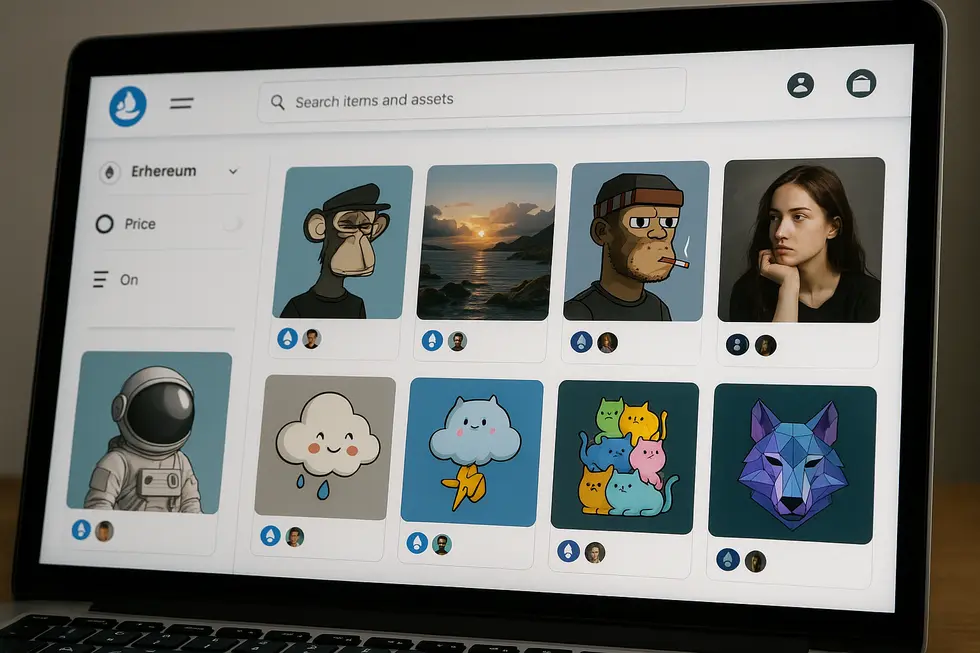
OpenSea holds a pioneering stature in the NFT marketplace, often referenced as the “eBay for crypto assets” in the Web3 world. Founded in December 2017, it has grown from the early days with efforts centered around the ERC-721 standard and iconic projects such as CryptoKitties. The marketplace gained mainstream traction in 2021 driven by phenomena like NBA Top Shot, Beeple’s sales, and collectible series like CryptoPunks. As a non-custodial platform, OpenSea offers users substantial control over their assets through secure wallet integrations.
This platform is renowned for its cross-chain support, encompassing blockchains like Ethereum, Polygon, and Base. OpenSea’s versatility is underscored by its expansive range of NFTs, including art, collectibles, and even virtual properties. Enhancements like their all-in-one app integrate seamless NFT management, token trading, and DeFi activities, consolidating user interactions within a streamlined hub. The recent OS2 update signifies a pivotal evolution with expanded cross-chain capabilities across 19 networks, meeting user demands with efficiency and innovation (source). Despite competition from Magic Eden and Blur, OpenSea’s adaptability ensures its continuing dominance in the dynamic NFT landscape.
Magic Eden’s Unique Position in the NFT Ecosystem
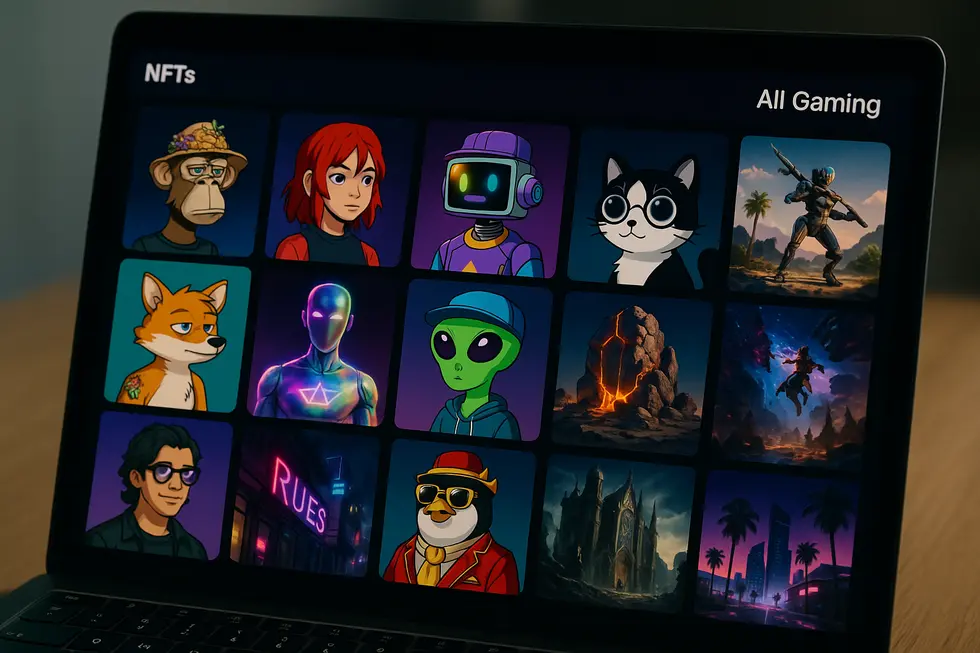
Magic Eden stands out as a remarkable force in the NFT marketplace landscape, particularly thriving in the Solana ecosystem. Offering support for multiple blockchains such as Solana, Ethereum, and Bitcoin, Magic Eden provides a seamless user experience backed by Solana’s efficient high-speed blockchain, renowned for swift transactions and minimal fees. This technological prowess makes it a magnet for NFT enthusiasts who seek a dynamic and cost-effective trading platform. At the heart of Magic Eden’s allure is its Launchpad, a selective springboard for emerging NFT projects, coupled with advanced marketplace aggregation and analytics tools that cater to both creators and collectors. Unlike Blur, which prioritizes professional trader efficiency, Magic Eden embraces a community-driven ethos, fostering a versatile environment that nurtures new talent and engagement across various user demographics. Its strategic commitment to multi-chain operations aligns well with the evolving NFT landscape, making it a leader, particularly on platforms preferring Solana. These characteristics underscore why Magic Eden has earned a pivotal place among NFT enthusiasts seeking a blend of efficiency, innovation, and community focus.
Blur: A Fast-Paced Oasis for Professional NFT Traders
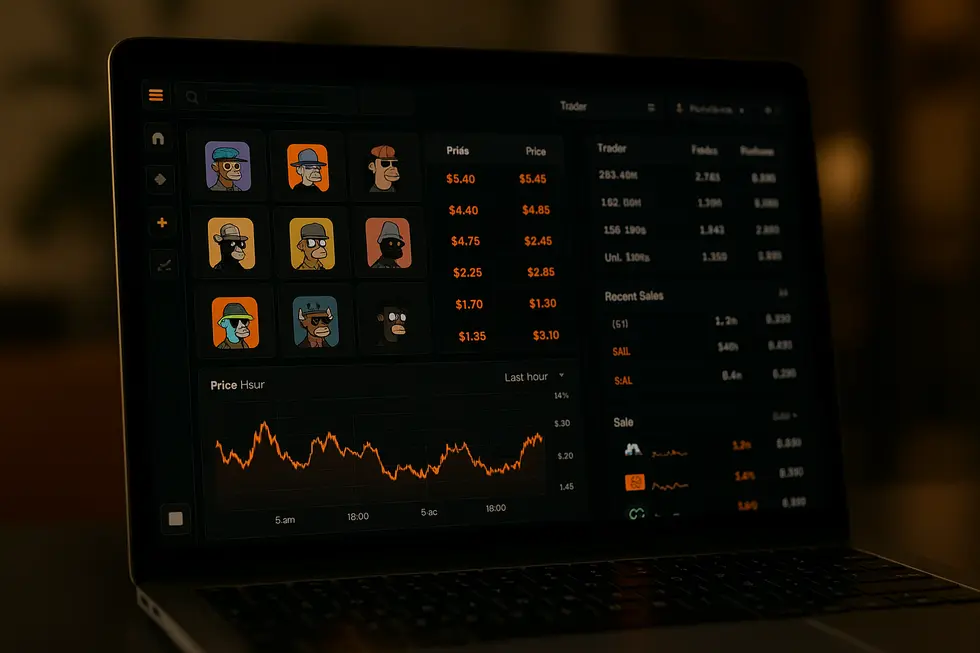
Blur emerges as a unique NFT marketplace, ingeniously tailored to cater to the demands of professional traders and creators. Its standout feature is not just its speed, but the sheer efficiency with which it operates within the NFT ecosystem. Designed for agility, Blur integrates listings from various marketplaces, enabling users to make informed decisions swiftly. The platform’s dynamic pricing mechanisms engage users with real-time data, creating a sense of vitality and competitiveness that few others in the market can match.
Blur also heavily invests in eco-conscious practices, seeking to blend environmental sustainability into its business model—a forward-thinking initiative that sets it apart. Key features such as zero transaction fees, coupled with tools like Sweeps and the innovative NFT lending protocol ‘Blend,’ make Blur a preferred platform among high-volume traders. It even rewards users by distributing airdrop care packages, reinforcing its commitment to community involvement and royalty agreements.
With governance under a decentralized autonomous organization (DAO), Blur’s user-centric approach is highlighted by the allocation of 51% of BLUR tokens to its community. This structure ensures that the platform is fundamentally driven by its users, providing a democratic and engaging environment for both new entrants and seasoned traders. For more insights into Blur’s governance model, visit this resource.
Rarible: Pioneering Community-Driven NFT Governance and Multichain Wallet Flexibility
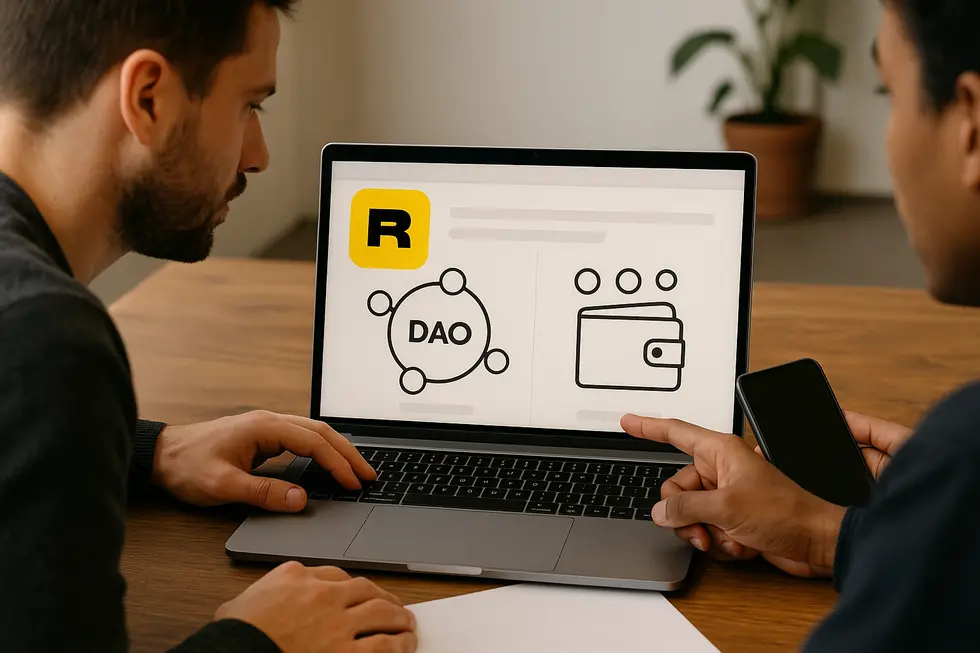
Rarible, a standout among NFT marketplaces, reshapes user engagement through its unique governance model. Leveraging the RARI token, introduced in July 2020, Rarible empowers its community by allowing token holders to partake in critical platform decisions. This democratic approach encourages a spirit of collaboration and inclusivity, differentiating Rarible in an ecosystem often dominated by traditional hierarchies. For a comprehensive understanding of Rarible’s governance framework, explore Rarible on NFT Evening.
Adding a layer of convenience is Rarible’s extensive wallet support, accommodating popular choices like MetaMask. Its multichain capabilities let users operate seamlessly across various blockchains, catering to diverse preferences and priorities. Whether prioritizing transaction cost or environmental impact, Rarible provides the flexibility to navigate these factors effectively.
In contrast to competitors like OpenSea, which lacks a native governance token, or Blur, which targets high-volume traders with zero-fee trading, Rarible offers a unique proposition through its community-first mindset and wallet versatility. This dual strategy not only enhances user autonomy but also aligns closely with the decentralized ethos of the blockchain world.
The Role of Community and Royalties in NFT Marketplaces
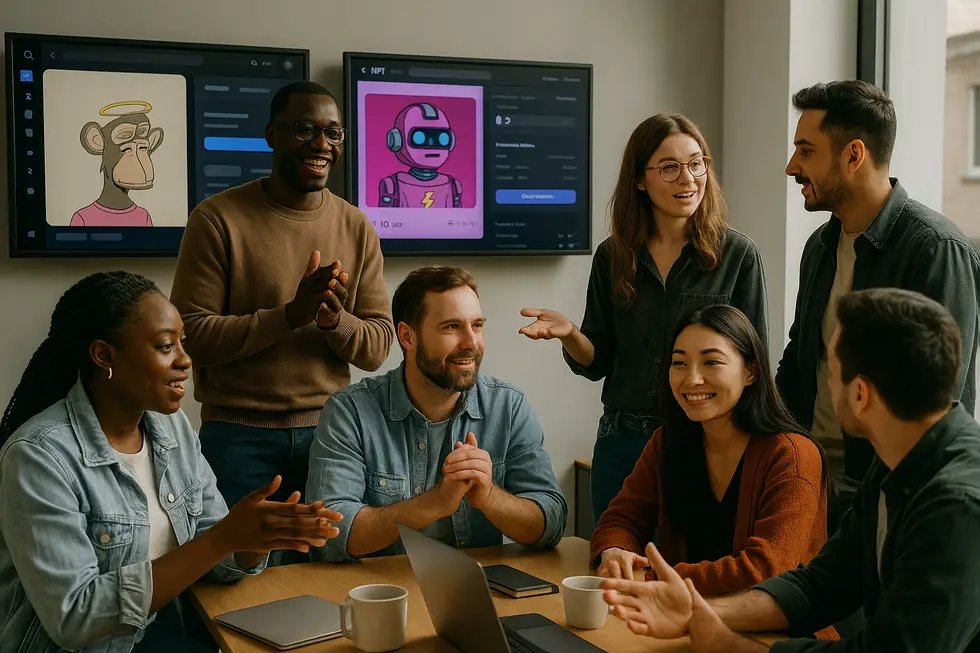
In the bustling world of NFT marketplaces, community engagement and royalty enforcement are critical components that significantly impact creators and collectors alike. Marketplaces such as Magic Eden and x2y2 have pioneered community-building tools that cater to their unique audiences. Magic Eden’s integration of whitelist management and launchpads helps creators foster targeted and active participation, expanding beyond its Solana roots to embrace Ethereum users. Meanwhile, x2y2 empowers users through token staking and profit sharing, ensuring governance decisions reflect the community’s voice.
Royalties, another cornerstone of NFT ecosystems, offer artists a steady stream of income through resale commissions, contrasting sharply with traditional art markets. However, varying policies between platforms complicate this promise. OpenSea champions automated royalties across sales, while Blur allows listings with zero royalties, potentially undermining artist profits. This disparity emphasizes the need to weigh marketplace policies critically when considering artist income sustainability.
Ultimately, choosing an NFT marketplace is not just about transaction fees or blockchain compatibility; it’s about aligning with platforms that support robust community engagement and uphold fair royalty practices, fostering environments conducive to long-term value retention for digital creators.
Final thoughts
In navigating the expansive NFT marketplace environment, one must consider not only the specific assets and services a platform offers but also how these align with personal or community values, such as governance, royalties, and user incentives. Whether you’re a creator, collector, or trader, this comprehensive understanding equips you to make informed decisions that align with your NFT goals.
About us
Monbase Global is a strategic partner of OpenLive Group, focused on expanding the reach and utility of blockchain and digital asset applications across international markets. As a core collaborator in the Monbase NFT ecosystem, Monbase Global plays a vital role in driving cross-border partnerships, investment strategies, and user adoption beyond Vietnam. With a vision to build a decentralized digital economy rooted in trust and innovation, Monbase Global supports the international growth of NFTs, digital collectibles, and the use of the MBC token across various platforms. The partnership between Monbase Global and OpenLive Group brings together local insight and global ambition—creating real-world value for creators, collectors, and businesses alike.
🌐 Join the Monbase NFT community and stay ahead of the Web3 curve.
💬 Follow us on Telegram, Twitter, or Discord for drops and updates!
Facebook | X (formerly Twitter) | Telegram announcement | Telegram community


